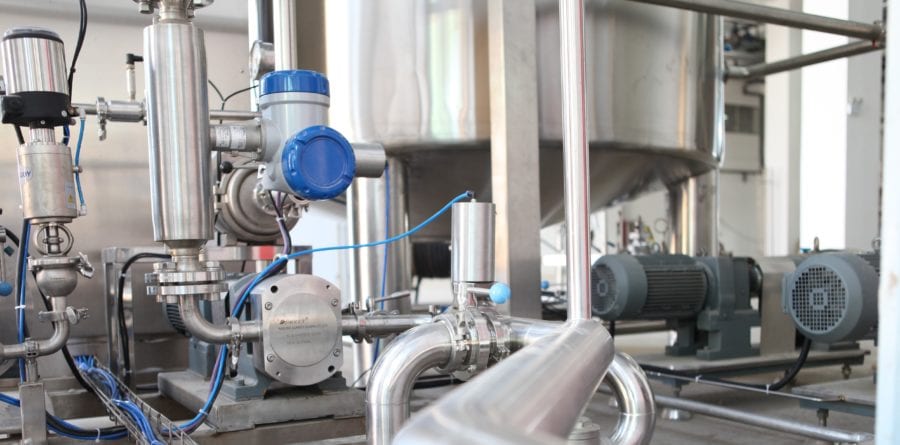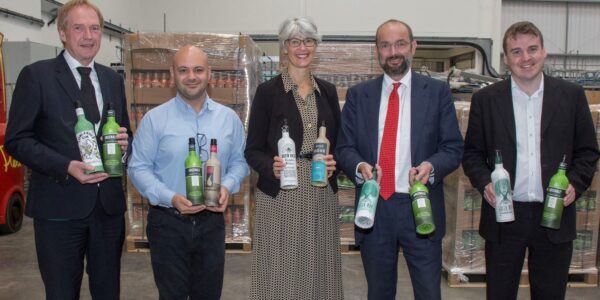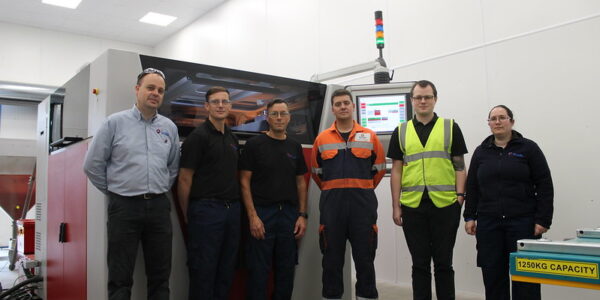UK MANUFACTURING BUSINESS OPTIMISM IMPROVES AT THE STRONGEST PACE SINCE 2014
1/02/2020 - CBI

Manufacturers reported a surge in optimism in the three months to January, marking the largest upward swing in sentiment in a single quarter on record. That’s according to the latest CBI quarterly industrial trends survey.
The survey of 300 manufacturing firms reported that business optimism improved significantly in the quarter to January, at the fastest pace since April 2014. Meanwhile, export sentiment continued to fall, but was noticeably less gloomy compared to last quarter.
Investment intentions also improved following particularly glum expectations in October, with a record proportion of firms expecting to authorise capital expenditure in order to expand capacity. But a record proportion of manufacturers were concerned that a shortage of labour could constrain investment spending over the year ahead.
The improvement in manufacturers’ sentiment belied poor activity over the quarter. Output volumes in the three months to January fell at a similarly quick pace to last month, largely reflecting a sharp fall in motor vehicles output. This marked the eighth month in a row of flat or falling output volumes. Total new orders fell at the quickest rate since the financial crisis, reflected by a similarly fast fall in domestic orders. However, orders and output are expected to recover slightly in the quarter ahead.
Moreover, headcount fell in the quarter to January at their fastest pace since the financial crisis, but firms expect the rate of decline to slow next quarter.
Anna Leach, CBI Deputy Chief Economist, said:
“With business optimism improving at its fastest pace since 2014 and some of the squeeze on investment plans lifting, it’s clear manufacturers are entering the new year with a spring in their step. Firms are now planning to invest more in plants and machinery, which will ultimately help increase capacity and output.
“However, this boost to sentiment belies poor trading conditions over the past quarter, with output and orders still declining. If we are to build on this rebound in optimism among UK manufacturers, it is crucial for the UK and EU to establish a trade deal that supports growth in this sector.”
Tom Crotty, Group Director at INEOS and Chair of the CBI Manufacturing Council, said:
“The boost to optimism in the manufacturing sector is very encouraging given the difficult environment that firms have faced in recent months. However, it is clear that the sector is not yet out of the woods in terms of performance, which means that this optimism could prove to be short-lived unless the government use their newfound strength to help address underlying issues holding back manufacturers.
“Manufacturers are ready to work with the government to make real progress on key domestic challenges such as increasing productivity, addressing skills shortages, improving sustainability and tackling climate change.”
Key findings:
Output
19% of businesses said that the volume of output rose in the three months to January, while 33% said it was down, giving a rounded balance of -15%.
Output only expanded in five out of 17 sub-sectors. The headline drop in volumes largely reflected a sharp fall in motor vehicles output. Meanwhile, the main positive contributors to output volumes were the mechanical engineering and food, drink & tobacco sub-sectors.
Manufacturers expect output to stabilise next quarter (+4%) – the strongest expectations in 7 months.
Orders
Total new orders dropped in the quarter to January (-21%) at the fastest pace since the financial crisis, with 24% of firms reporting up and 45% reporting down.
The fall in new orders was reflected in the quickest drop in domestic orders (-21%) since the financial crisis, while export orders fell at a slower pace than last quarter (-10% from -24% in October). Manufacturers expect total new orders to grow next quarter (+9%), with domestic orders broadly flat (-2%) and export orders growing slightly (+5%).
Headcounts
Headcount fell in the quarter to January (-16%) at the fastest pace since the financial crisis.
Firms expect employment to decrease at a slower pace in the three months to March (-8%).
Costs
Average costs in the quarter to January (+20%) grew at a slightly faster pace than October (+16%).
Manufacturers expect average cost growth to remain roughly steady next quarter (+19%).
Business optimism
Business optimism improved significantly in the three months to January (+23% from -44% in October), which is the strongest it’s been since April 2014. This also constituted the largest swing in sentiment (67% points) in a single quarter on record (since 1958).
Meanwhile, export sentiment was noticeably less gloomy compared to last quarter (-8% from -46% in October).
Investment intentions
Firms expect to invest a little more in plant & machinery (+5%) following five quarters in a row of falling investment intentions, while they expect capital expenditure on product & process innovation (-1%) and training & retraining (-3%) to be roughly the same as they planned in October.
Expectations for investment in buildings remained negative despite improving noticeably from last quarter (from -44% in October to -11%).
Expected constraints on activity
The share of manufacturers citing political/economic conditions abroad as a factor to limit export orders in the next three months declined from 66% in October to 48% in January.
Additionally, the share of firms citing quota/import restrictions as a factor to limit export orders fell from 20% in October to 5% in January.
Business prospects and plans
The share of manufacturers citing expanding capacity as a driver of planned capital expenditure was at a survey record high (57%).
The share of firms citing labour shortages as a factor likely to limit investment was at its highest on record (33%).
For more information visit our website
CBI Press Office is available 24 hours a day on 0207 395 8239
Email: press.office@cbi.org.uk.
All articles on this news site are submitted by registered contributors of SuffolkWire. Find out how to subscribe and submit your stories here »


